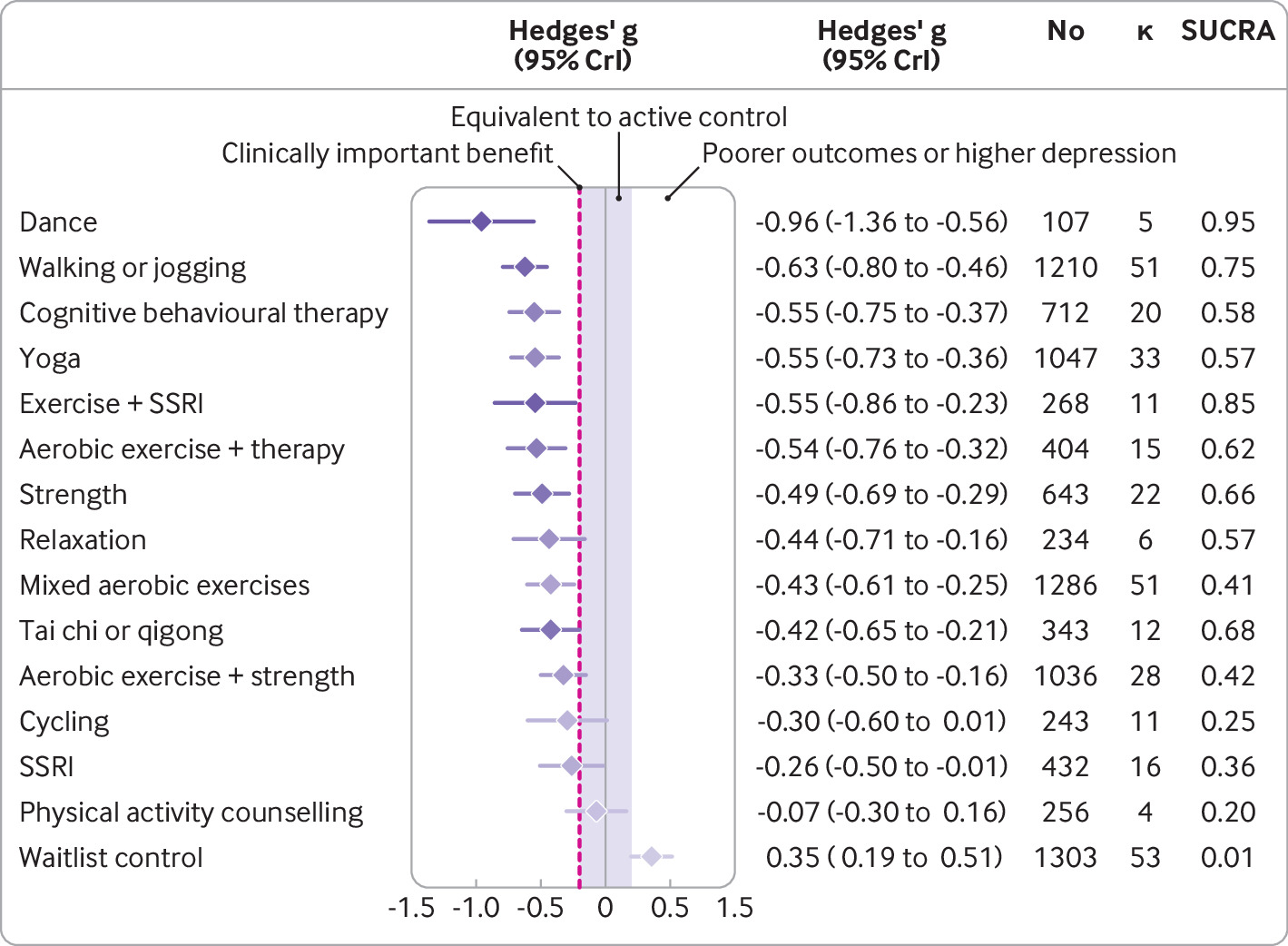Dance the depression away
A meta-analysis published in February 2024 of randomized control trials evaluated the effect of different strategies in treating depression across 14,170 participants and 218 studies (Noetel et al, 2024).
The key result from this paper is the following figure which compares interventions to active control.

Hedges’ g computes effect size between groups as the difference between their means (control mean - treatment mean) divided by their pooled standard deviation. A value of zero implies no benefit relative to active control, and negative values correspond to the treatment having a stronger benefit than active control. Active control is defined as “usual care, placebo tablet, stretching, educational control and social support”. It is somewhat unclear what “usual care” means for major depressive disorder (MDD) and why SSRIs are distinct given that SSRIs are often used to treat MDD. Regardless, active control is a high bar to compare against which is good in limiting false positives.
Dance had the largest effect (Hedges’ g -0.96 w/ 95% CI -1.36 to -0.56). Walking, yoga, and CBT are all better or just as good as SSRIs combined with exercise (strenght, aerobic). Dance has wide confidence intervals because the sample sizes are small (n = 107) relative to the rest of the intervention groups. It is striking that dance, even taken at the 2.5% quantile of a Hedges’ g of -0.56, is quite good at treating depression relative to active control. The major caveat outside of sample size is that most (>80%) of these individuals were young women and so the generalizability to other genders and ages may be limited. I suspect that the type of dance capable of treating MDD is movement that you find fun and keeps you in the moment - dance in your room, the shower, a bar, it doesn’t matter.
Depression exists on a spectrum and MDD is on the right side of that spectrum. Depression rates are on the rise and currently ~29% of Americans experience depression. The findings in this meta-analysis should extrapolate to more milder forms of depression where the majority of those affected by depression live. The primary takeaway is to regularly move your body in a way you find truly enjoyable (dance, walk, yoga, lift weights regularly) and that is often better than medical therapy alone or in conjunction with other interventions in treating depression.